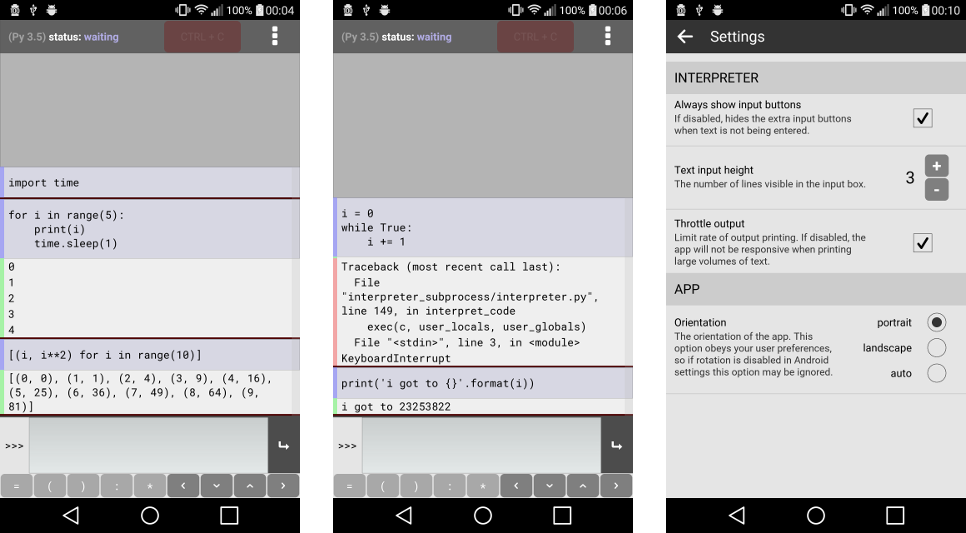Pyonic interpreter
Pyonic interpreter is a Python interface app for Android. It supports both Python 2 and Python 3 in the same codebase, and is itself written in Python using the Kivy graphical framework. The code is open source and available on Github.
Pyonic can be downloaded for Android devices via Google Play, for each of Python 2 and Python 3. You can also download the APKs for each release from Github. These APKs should work on any Android device with Android 3.0+ (building for earlier versions should also work but hasn’t been tested). Pyonic also runs on desktop platforms, although the UI is designed primarily for touch interaction.
The goal of Pyonic is to provide a convenient Python interface adapted for mobile use, rather than a plain terminal emulator. It also serves as a test project for the python-for-android build tools. The app currently provides an interface to a single Python interpreter instance (which can be restarted or interrupted). Targeted features for the future include support for multiple interpreter sessions, file editing, pip management of the local Python distribution, and support for different ways of running scripts (e.g. supporting graphics via Kivy).

Technical details
Pyonic interpreter is written in Python using Kivy, which is a cross-platform graphical framework primarily supporting Windows, Linux, OS X, Android and iOS. As such, Pyonic also works on desktop platforms, and could probably work on iOS with only a small amount of work to handle the interpreter abstraction.
On desktop platforms, the Python interpreter is managed as a subprocess. On Android, it instead runs in a Service. In both cases, communication with the Pyonic GUI is managed over sockets using the osc protocol, which is quite crude but works well. This mechanism may be improved in the future.
Pynoic runs on Android via python-for-android, a packaging tool to turn Python projects into APKs. It does not need any special treatment to be compiled this way, and works fine with both Python 2 and Python 3 builds. Information about how to compile an APK can be found in the README.